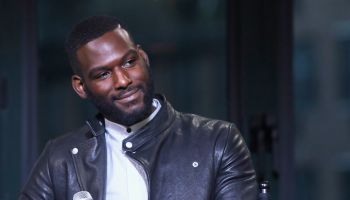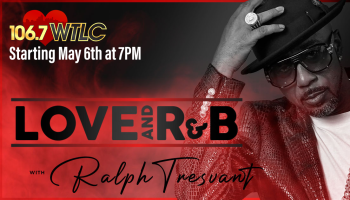Wyclef Jean’s heart may be in the right place. But can he manage a country in crisis?
Jean, the wildly popular Haitian musician and philanthropist, announced Thursday on CNN that he’s running for president of Haiti – the western hemisphere’s poorest country. He has no political experience, but Jean brings a sense of excitement and hope for the future.
“I am not a politician,” Jean, 37, said in an inverview from Haiti. “What I am is a young youth that has seen my population suffer. I’m being drafted by the youth of Haiti. I represent the voice of the youth, which is over 50 percent of the population.”
In theory, Jean’s cause is noble. But in reality, this may not be the best career decision.
Perhaps his lack of administrative experience won’t matter since many Haitians may view Jean as the savior they’ve been waiting for. His candidacy has created quite a buzz around the world.
Indeed, Jean brings international star power to his presidential bid, and he has shown an ability to raise large sums of money for Haiti. But Jean could also be the first president in Haiti’s history to need a translator to communicate with his constituents: Jean doesn’t speak French or Creole very well – Haiti’s primary languages.
Haiti clearly needs innovative leadership and a president with vision and commitment. President Barack Obama has inspired many black activists worldwide to seek higher political office, and perhaps Jean is drawing on Obama’s historic election to create history himself. But he needs to assemble an experienced leadership team to supplement his obvious administrative shortcomings.
“We need the diaspora outside of Haiti to help,” said Jean, adding that job creation, agriculture and education are critical to the redevelopment of Haiti.
But one thing is certain: Haiti’s next president will face a myriad of unforeseen challenges – and potential dangers. Few Haitian presidents have completed their lawful five-year terms as most have been overthrown by violent coups, declared themselves “president-for-life” – or been assassinated. It’s hardship duty, the kind of job that would force a president like Jean to spend many waking moments looking over his shoulder and wondering if his most trusted aides are actually trustworthy.
Haitians deserve a president who understands the nuts and bolts of governing: International finance, budgets, economic development, urban planning – and how to rebuild hospitals and schools from mounds of rubble and twisted steel.
And maybe Haiti’s voters won’t care about Jean coming under criticism for alleged improprieties with his fundraising organization, a reported $2.1 million tax lien, and widely reported accusations that he cheated his own charity, including using charity funds to pay his alleged mistress. Jean, for his part, has denied any wrongdoing.
Still, despite the financial controversy, Eduardo Gamarra, a political science professor at Florida International University, told reporters: “He’s a very, very strong candidate, especially when nobody else has the resources.”
Haiti seriously needs resources. The social, economic and political fallout from Haiti’s devastating earthquake in January is monumental.
Consider these statistics: Since the earthquake, 222,570 Haitians died, and more than 300,000 people were injured. There are 1,300 makeshift camps “spontaneous settlements” for the 1.5 million Haitians who are now homeless as a result of the earthquake. Eighty percent of Port-au-Prince schools were destroyed or damaged; 60 percent of hospitals were destroyed or damaged; and 7,000 babies per month have been delivered since the quake.
Relief workers report that today, Haiti looks the exact same since the earthquake in January. Half a year after the quake, “the rebuilding effort in Haiti has stalled,” according to the U.S. Senate Committee on Foreign Relations. And there’s more: In Port-au-Prince, nearly half the voting booths were destroyed, and voter-registration rolls were ruined and reportedly on backup computers in Mexico.
Jean, a former front man for The Fugees, should certainly follow his heart if he thinks running for president of Haiti is in the best interest of Haitian citizens. But after all the hell Haitians have experienced through the years, they need – and deserve – a president who is a skilled and accomplished administrator, a capable manager trained in crisis management and overseeing complex organizations.
There’s no doubt that Jean is a caring and compassionate soul. But being a great band leader doesn’t mean he can lead Haiti.
But then again, “The Terminator” now answers to Governor.
















